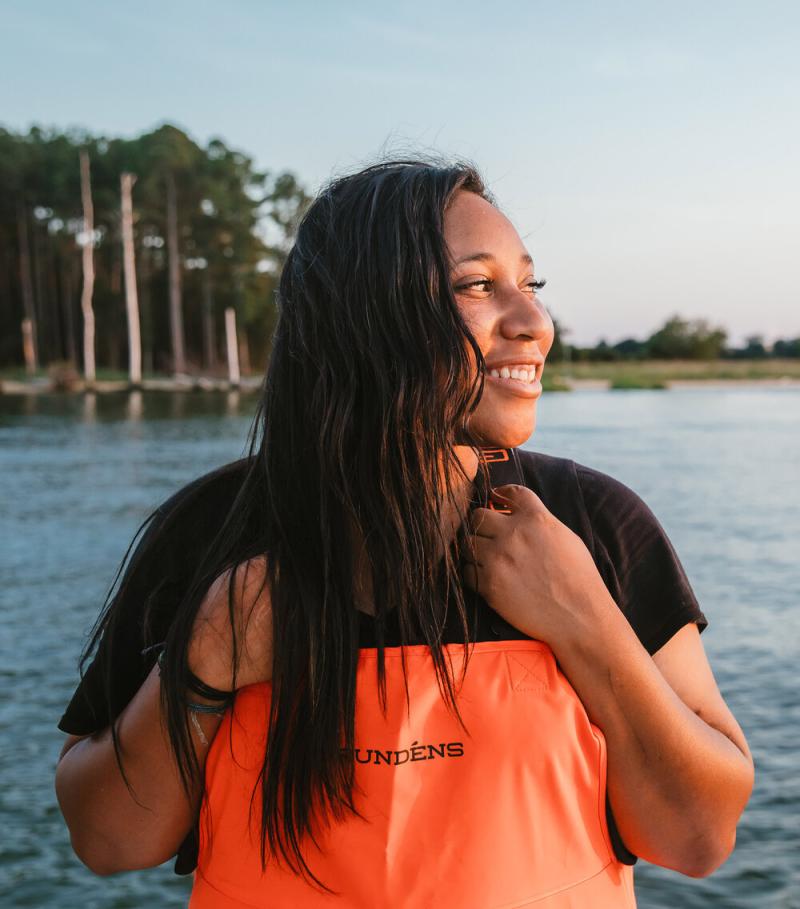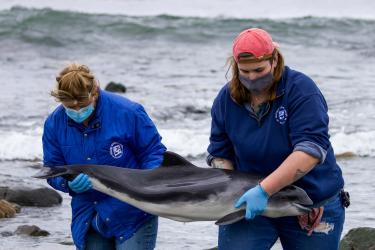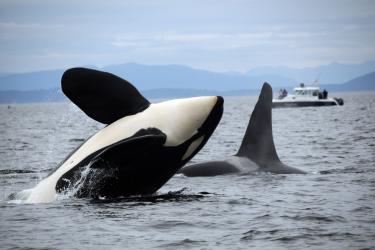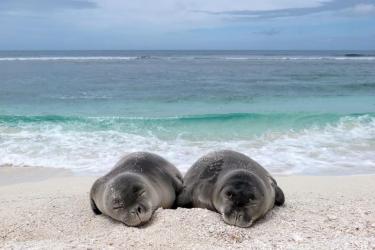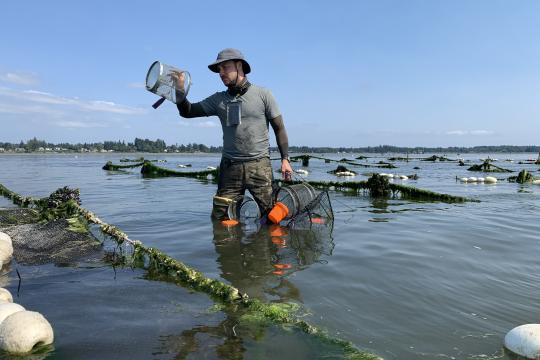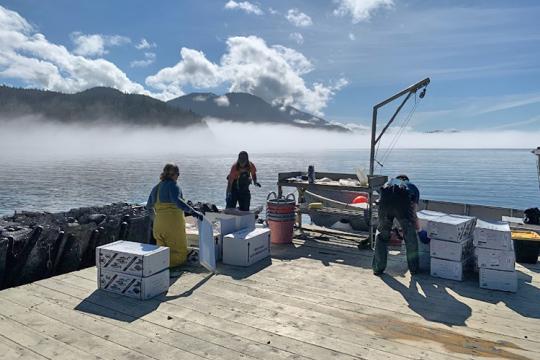When it comes to seafood, diversity is key. Diverse species support healthy ecosystems, and diversifying wild-capture with farmed seafood production supports coastal communities facing economic or environmental uncertainty. However, the need to increase social diversity in the seafood and aquaculture community can often be overlooked. That is exactly why Minorities in Aquaculture was founded.
Minorities in Aquaculture was created with a vision of a diverse and inclusive aquaculture industry. “We are passionate about the restoration of keystone species, especially shellfish, both locally and globally,” said founder Imani Black. “We also believe that the restoration of oysters and other critical shellfish populations requires more people and more diversity.”
Imani grew up in a coastal community on the Eastern Shore of the Chesapeake Bay where many make a living connected to the water. “Even though African Americans have a long and rich history in the evolution of the Chesapeake Bay’s seafood industry, most of their stories, hardships, and accomplishments were scarcely recorded by white society,” added Imani. She also points out that few written first-hand African American accounts exist today as Black communities were historically prevented from becoming literate. “Black communities have a long history of working on the water, whether in ship building or seafood harvesting. In fact, Fredrick Douglass used his knowledge of waterways to escape slavery,” added Imani. “However, their historical contribution is often overlooked.”
After graduating with a biology degree from Old Dominion University, Imani found herself working in oyster aquaculture at Virginia’s first privately owned hatchery. For the past two years she has worked as a hatchery technician and assistant manager helping expand the economic and environmental benefits of shellfish aquaculture. She wanted to work on the social side as well. “Currently, women—especially women of color—are the minority in the aquaculture field and I want to increase the diversity of the industry.”
Through Minorities in Aquaculture, Imani leads efforts to increase access to a community of women interested in aquaculture, career development opportunities, mentorship, and other ways to collaborate. She says, “We are still a relatively young organization, but the aquaculture community has been welcoming.”
Imani has been a guest speaker and collaborator in NOAA's Community of Practice for Aquaculture Literacy. Allowing her to connect to aquaculture researchers, federal agency staff, farmers, and marine educators to collectively increase diversity and accessibility of aquaculture in the United States. Minorities in Aquaculture is also collaborating with organizations including:
- University of Maryland’s Environmental Science Center’s Horn Point Laboratory
- Smithsonian Environmental Research Center
- U.S. Aquaculture Society’s Diversity & Inclusion committee
Aquaculture is the fastest growing food system in the world. While the annual domestic aquaculture production is valued at $1.5 billion, the United States ranks 17th in production worldwide showing the untapped potential for expansion. With a growing need for resilient food systems, aquaculture could offer new career and education opportunities. “Whether you are interested in careers in STEM or the outdoors, food production, ecological restoration, or even community health, aquaculture has something to offer,” added Imani. “I encourage those interested to reach out to Minorities in Aquaculture or tap into their local aquaculture community to learn how they can get involved.”
